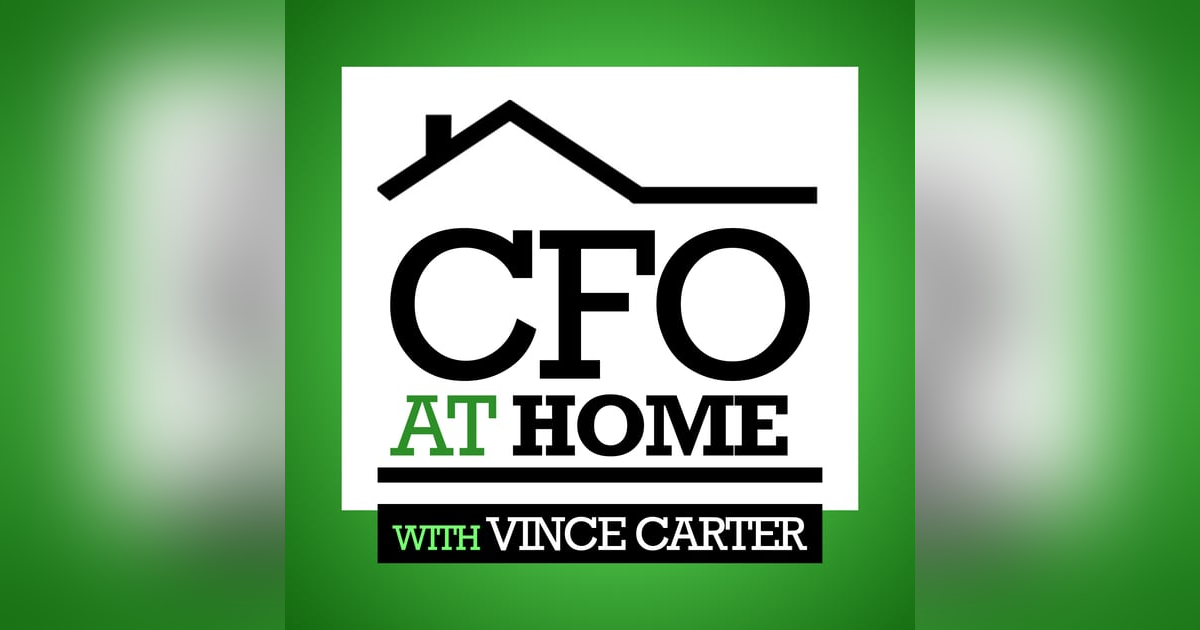107. Attack your Money Goals like a CFO - Part 2: Committing to Goal-Related Actions

On last week's episode we introduced a study by a noted psychology professor that looked at how goal achievement in the workplace is influenced by three key actions: 1. Writing goals 2. Committing to goal-directed actions 3. Creating accountability...
On last week's episode we introduced a study by a noted psychology professor that looked at how goal achievement in the workplace is influenced by three key actions: 1. Writing goals 2. Committing to goal-directed actions 3. Creating accountability for those actions In that episode we focused on the first step, Writing Goals. In this episode we’re moving on to Step 2, Committing to goal-directed actions.
In a study conducted at the Graduate School at City University of New York, participants were trained to throw darts:
- The first group was told to aim at the highest score possible; which is a clear goal
- Group 2 was told to use a specific process to get a high score: bring their arm back, adjust the angle of the throw, and have a firm grip on the dart
- Group 3 was told to take the same steps as Group 2. Once they mastered the skill, they were asked to switch their focus to the outcome (a high score). This group, whose members focused on both the process and outcome, far outperformed the other two groups.
So how does this all relate back to achieving our money goals? Last week, we used “Pay off my Visa Card in the next 6 months” as an example of a SMART money goal (SMART again is an acronym for Specific, Measurable, Achievable, Relevant, and Time-Bound). Once that goal is written down, what actions could we commit to in order to achieve the goal? Our steps could look like:
- If we don’t have an emergency fund, consider saving for that first. This may very well extend our timeline for paying off our credit card (change would require a change in plan), but having an emergency fund could help us to keep our momentum going once we start to pay the card off, because we’ve built up some cushion between our efforts to pay off the card and unexpected expenses.
- If we have an emergency fund, our next step could be to decide on a debt payoff strategy. One popular strategy is the Snowball Method, where you pay off your debts from the smallest balance to largest. This method allows you to pay off individual debts faster, which many people find to be motivating. Again, if we decide to go with this strategy it may cause a shift in our goal if that Visa Card is not our smallest debt. Again, nothing wrong with that.
- If we don’t have a budget, our next step could be to devise a plan to develop one. If the idea of a budget seems intimidating, perhaps we could plan to develop it in steps:
-
- Keep a record of all of our spending for a month.
- Use that record of what we spent in the previous month as a starting point for creating a budget for the current month, adjusting to account for the unique expenses of that month.
- Scour our budget for any opportunities to reduce expenses in the current month in order to more aggressively pay down our debt.
- Repeat the process while being patient with ourselves. It typically takes a few months to get the hang of budgeting. After we’ve gained confidence with our budgeting, we should reach the point where you can project our budget out a few months ahead fairly accurately, so we can reassess our target date to pay off our debt.
This example, while very simplified, makes a couple of really important points:
- In the process of taking our written goal and turning it into goal-directed actions, our goal may shift. That's OK, particularly if this results in making our goal more achievable.
- As we mentioned last week, developing a plan to address one goal can lead to improved money habits that can serve us well in multiple areas of our financial lives. In this example, developing a plan to pay off our credit card could also lead to plans to create an emergency fund and a budget; common financial goals but in this case with a meaningful “why” behind them.
So now it’s your turn. If you haven’t developed your written goal, go back, listen to last week’s episode, and get cracking. Otherwise, right under your written goal, outline your action steps. Again, don’t obsess over each step being perfect. Think of this as a version 1 of your plan, that brave first step along the path. More than likely there will be twists, turns, and obstacles that require you to make adjustments along the way, but you gotta start somewhere.
You miss 100% of shots you don’t take, A journey of a 1000 miles begins with a single step. Pick your favorite motivational saying/cliche and get to it!
In the next part of this series, we’ll focus on the final step; creating accountability for our goal-directed actions Until next time...
Resources
- Goals Research Study - Dominican University California
- New Study Says This Simple Step Will Increase the Odds of Achieving Your Goals (Substantially)
- How to write SMART goals (and why they matter)
Contact the Host - vince@thecfoathome.com
















